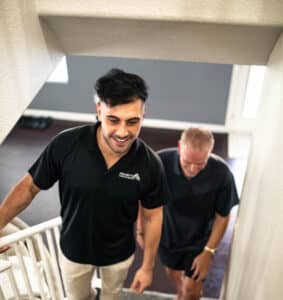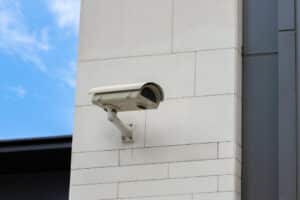Adverse Possession Laws Virginia
In Virginia, squatters have some legal rights thanks to Adverse Possession laws.
These laws allow squatters to make a claim on a property they’ve been living in for a while. If their claim works out, the squatter can become the official owner of the property, even if they don’t have the fancy paperwork or haven’t been paying rent.
So, who are squatters? Well, in Virginia, squatters are folks who move into a property without the owner’s knowledge or permission.
They often set up shop in foreclosed homes, abandoned places, or just spots that nobody’s using. And since they’re not exactly following the landlord’s rules, they usually don’t bother with rent either.
 Are Squatters and Trespassers the Same?
Are Squatters and Trespassers the Same?
Nope, they’re quite different. Squatters are more of a civil matter, while trespassing is a criminal offense. A squatter only turns into a trespasser if the property owner makes it clear they’re not welcome anymore.
Plus, squatters aim to eventually own the property, while trespassers don’t have such plans.
What About Holdover Tenants?
In Virginia, holdover tenants are also known as ‘tenants at sufferance.’ These are folks who stick around even after their lease is up. If the landlord is cool with it, they can stay, following the same rules. But if the landlord wants them out, they can terminate the tenancy anytime. At that point, the tenant becomes a trespasser.
Typically, a tenant who’s been asked to leave can’t pull off an adverse possession claim.
What Are Squatter’s Rights in Virginia?
Squatter’s rights in Virginia are all about time and manner. To claim these rights, a squatter has to live on a property for a solid 15 years (according to Va. Code Ann. § 8.01-236,237).
But it’s not just about time. There’s a specific way a squatter must occupy the property:
- Hostile Possession: In property law, ‘hostile’ doesn’t mean what you think. It comes in three flavors: Simple Occupation, Awareness of Trespassing, and Good Faith Mistake. Virginia goes with the first one, where the squatter doesn’t have to know who the land belongs to.
- Actual Possession: The squatter must be physically present on the property and treat it like their own. Think landscaping or repairs as proof.
- Obvious Possession: Under the Open & Notorious rule, the squatter’s occupation should be clear to anyone, even the neighbors and the owner.
- Exclusive Possession: No roommates allowed. The squatter must have the property all to themselves.
- Continuous Possession: No breaks allowed. Squatters must stay on the property for a full 15 years without leaving.
Does Virginia Honor Color Of Title Claims?

The continuous occupation period required for adverse possession is 15 years. However, if a squatter has color of title, this period may be reduced. The law acknowledges that if a person has a document that appears to grant them ownership, they might genuinely believe they have a legal right to occupy the property.
How to get rid of Squatters in Virginia
Getting rid of a squatter in Virginia might sound tricky, but it follows a pretty standard eviction process. There aren’t any special laws just for squatters in the state. So, here’s the casual lowdown on how to boot them out:
- Serve an Eviction Notice: Your eviction journey starts with serving the squatter an eviction notice. Now, the type of notice you use depends on the situation. But if there’s no legit document allowing the squatter to be there, chances are the law is on your side.
- Legal Route: Most cases, especially when there’s no solid evidence of their right to be there, will swing in your favor. But, here’s the important part: don’t take matters into your own hands. No DIY eviction tactics like tossing their stuff out or cutting off their utilities. Leave that to the pros.
- Sheriff’s Role: When it’s time to physically give them the boot, only the sheriff or a constable can do the job. So, hands off the DIY eviction, and let the law handle it.
Remember, while it might seem like squatters have some rights, the law usually sides with property owners in Virginia. Just make sure you follow the proper legal process, and those unwanted guests will be out the door.
Property Protection In Virginia
Protecting your property from squatters in Virginia is all about staying vigilant and proactive. You don’t want someone making themselves at home without your approval, right? Here’s how to keep squatters at bay:
- Regular Check-Ins: Make it a habit to visit your property frequently, especially if it’s vacant. Keep an eye out for any signs that someone might be living there. Check for open doors, windows, left-behind trash, or any indications of entry. If the property is a bit far away, consider connecting with a neighbor who can keep an eye out for you.
- Stick to Maintenance: Maintain a regular upkeep schedule for your property. Not only does this keep your place in good shape, but it also deters potential squatters. A well-maintained property gives the impression that someone’s already living there, which can make squatters think twice. Plus, by keeping up with maintenance, you’re nipping any potential adverse possession claims in the bud.
- Document Management: Stay organized with your property records. Keep track of tax deadlines and payment receipts to ensure no one else pays the property taxes. Safeguard essential documents like the property title and expense records. Good record-keeping helps prevent scammers and squatters from using your documents against you.
- Alarm System: Installing an alarm system is a smart move. It acts as a deterrent for trespassers and potential squatters. If your property sits vacant for a while, the alarm can alert you at the first sign of entry, helping you differentiate between a mere trespasser and a more serious problem like a squatter.
By staying on top of these steps, you can help ensure your property remains free of unwanted guests in Virginia.
Frequently Asked Questions
Is Color of Title required for adverse possession in Virginia?
No, Virginia does not require squatters to have a “color of title” to make an adverse possession claim. While having one may help their case, it is not a mandatory requirement for adverse possession claims.
Can adverse possession claims be made on any type of property, regardless of its condition?
Adverse possession claims in Virginia can generally be made on properties that are unoccupied, abandoned, or foreclosed. However, the property must meet specific legal conditions and requirements for adverse possession to apply.
What is the process for evicting a squatter in Virginia?
To evict a squatter in Virginia, property owners must follow the judicial eviction process, which involves serving an eviction notice, attending a court hearing, and obtaining a Writ of Possession if the eviction is granted by the court. Self-help eviction tactics are not allowed in Virginia.

 Are Squatters and Trespassers the Same?
Are Squatters and Trespassers the Same?



